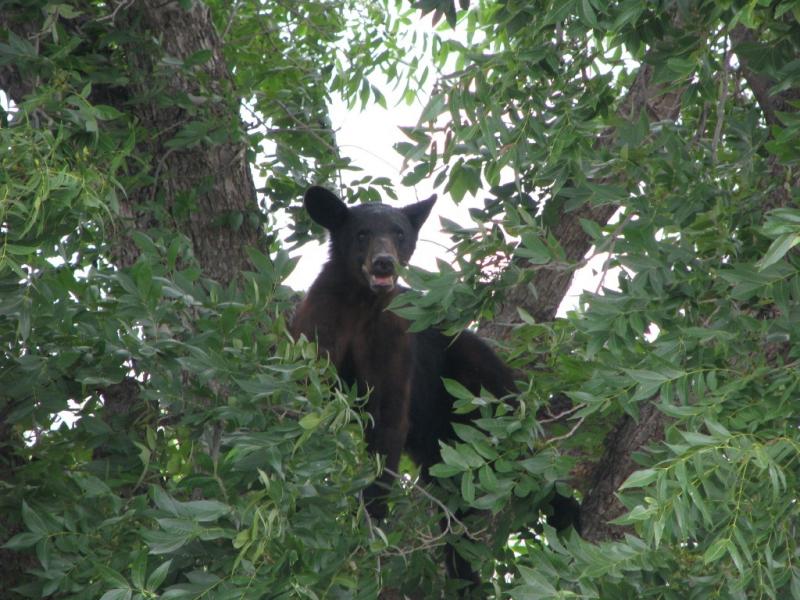
Source: Texas Parks and Wildlife Department | Oct. 20, 2020
As occasional bear sightings continue to crop up in the west and southwestern portions of the state, the Texas Parks and Wildlife Department (TPWD) encourages residents to practice bear safety as the likelihood of spotting a bear in a populated area increases. Black bears are native to Texas and are a part of our natural heritage and the Texas ecosystem.
On Oct. 16, a black bear sow and her cub were spotted in city limits of Del Rio. TPWD employed standard bear hazing procedures which often include making loud noises, and in some cases, shooting non-lethal flash rounds, paintball rounds or rubber buckshot rounds at the bears. The hope with hazing is to scare the bear out of residential areas and into more wildland environments. If hazing is unsuccessful, and the bears have been allowed time to relocate themselves but haven’t done so, trapping and physically removing the animals is the next step.
“Our bear hazing protocols provide the best chance for the bear to live wild and relocate itself naturally,” said Jonah Evans, a mammologist with TPWD. “Trapping and relocating a bear is extremely invasive and puts a lot of stress on the animal, sometimes resulting in mortality, and there’s no promise then that relocation will be successful.”
Evans says that if bears are relocated, it is not always guaranteed that they will stay in the area where they were moved. In many instances, once bears associate people with food, they are more likely to stay within a residential area.
Following the recent bear sightings in Del Rio, it was discovered that the sow and cub may have been drawn to pet food that is frequently left out by residents to feed local stray cats. Residents in areas where bears have been spotted should secure anything that could be a potential attractant (e.g. garbage, pet food, bird and deer feeders, etc.).
Unfortunately, this incident ended when the sow was shot and killed by a Del Rio resident. The incident is still under investigation by Texas Game Wardens. TPWD biologists have found a suitable rehabilitation solution for the cub at the Cottonwood Wildlife Rehabilitation Center in New Mexico.
“Bears, in most instances, are not a danger to people,” Evans said. “In 120 years in the lower 48 states, there have been fewer than 20 fatal attacks by bears. Compare that to 20 fatal attacks yearly by domestic dogs. Other cities throughout the country have found ways to peacefully live with area bear populations, and we can do the same in Texas.”
Bear-proof garbage dumpsters are a great option that many communities in the western U.S. have deployed to reduce or prevent bear encounters. Keeping trash bags in a secure location until the morning of trash pickup are also encouraged practices. Similarly, TPWD biologists recommend feeding pets inside or limiting pet food portions to an amount that can be consumed completely at each feeding. More information can be found on the TPWD website.
Black bears are currently a protected species in Texas. If you see a bear, please stay away and do not attempt to feed it. If you are in an urban or developed area, and a bear exhibits aggressive behavior toward humans or causes property damage, notify your local police or sheriff dispatch immediately and request that they contact the local TPWD Biologist or Game Warden. Noting the bear’s size, direction, speed of travel and behavior, especially when it is feeding in town, will greatly aid authorities in determining how to respond. Not all calls regarding bears need further investigation if the bear is not displaying aggressive or threatening behavior.
In all instances, staying away from the bear and keeping pets secured indoors and away from the animal will facilitate the overall best outcome.
